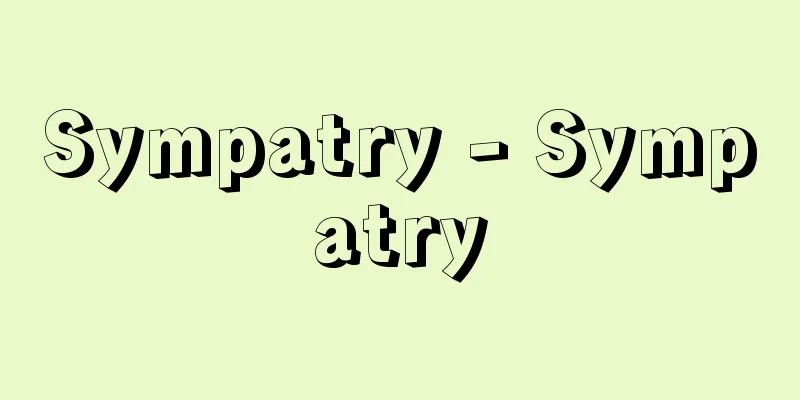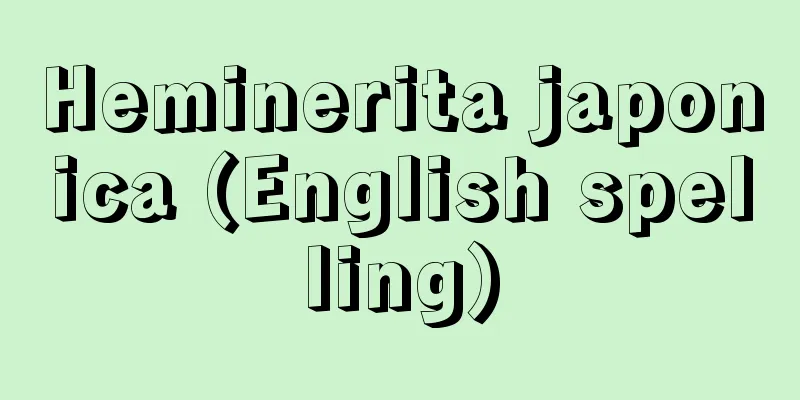France
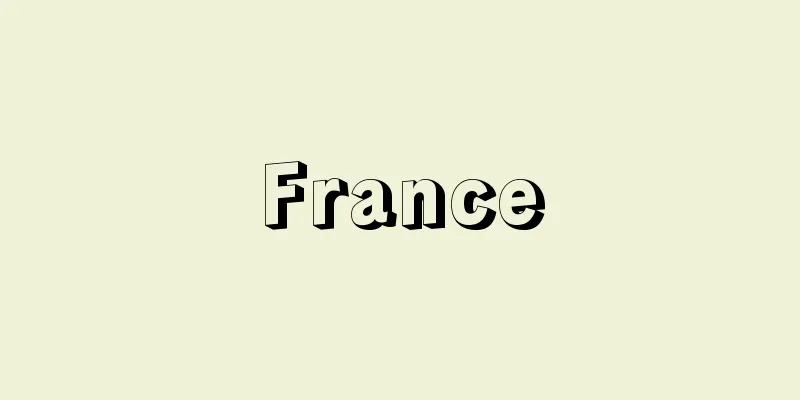
|
◎Official name: French Republic. ◎Area: 543,965 km2 (mainland only). ◎Population: 63.93 million (2014, mainland only). ◎Capital: Paris (2.18 million, 2006). ◎Residents: Mostly French, others Basque, Breton, Provencal, Corsican, etc. ◎Religion: Catholic (approximately 80%), Islam, Protestant. ◎Language: Mostly French (official language), others Basque, Breton, etc. ◎Currency: Euro. ◎Head of state: President, Francois Hollande (born 1954, inaugurated in May 2012, five-year term). ◎Prime Minister: Manuel Carlos Valls (second cabinet formed in August 2014). ◎Constitution: Fifth Republic Constitution enacted in October 1958, amended in November 1962 (the president is elected by direct referendum). ◎National Assembly - Bicameral. Senate (348 seats, six-year term, half elected every three years). National Assembly (577 seats, five-year term). ◎GDP - $2,130.3 billion (2008). ◎GDP per capita - $34,208 (2008). ◎Proportion of people employed in agriculture, forestry and fishing - 2.9% (2003). ◎Life expectancy - 77.7 years for men, 84.4 years for women (2009). ◎Infant mortality rate - 3‰ (2010). ◎Literacy rate - 99%. * *Republic in the western part of the European continent. In addition to the mainland, the overseas departments (Guadeloupe, French Guiana, Martinique, Reunion) and overseas territories (New Caledonia, French Polynesia, etc.) total an area of 157,116 km2 and a population of about 2 million. [Nature and inhabitants] The country is located in the temperate zone, between 8°E and 5°W and 41°N and 51°N. It faces the Mediterranean Sea to the south and the Atlantic Ocean to the west, and faces the UK across the Straits of England and Dover. In general, the eastern half is mountainous, while the western half is low and flat. The Alps and Jura mountains extend along the border with Switzerland and Italy in the southeast, and the Saône and Rhône rivers flow south forming the Rhône Corridor. The Pyrenees run along the border with Spain in the southwest. Between the Alps and the Pyrenees is the Massif Central, which is connected to the Vosges Mountains near the border with Germany in the northeast and the Ardennes Mountains in the north. The highest point is Mont Blanc (4,807m). The Paris Basin spreads out in the central north, with the Loire River running through the south and the Seine River running through the center. A cuesta topography is developed on the eastern periphery of the Paris Basin. The Cotentin Peninsula and Brittany Peninsula jut out into the Atlantic Ocean. The area west of the Massif Central to the shores of the Bay of Biscay is the Aquitaine Basin, where the Garonne River flows northwest. There are many lagoons on the shores of the Bay of Biscay. The climate is temperate with heavy rainfall in the west to northwest, continental in the east, and Mediterranean in the south. The inhabitants are mostly French, and the official language is French, but Basque, Breton, Flemish, and German are also used in some areas. There are many immigrants from former colonies, including Arabs and blacks. The Islamic population is particularly large in the EU, and ethnic friction over different cultures has become apparent. [History] The Celts have lived here since the 9th century BC, and it became a Roman province in the 2nd century BC. In the 5th century, the Franks invaded during the Great Migration and established the Frankish Kingdom, which became a great power spanning Western Europe under Charlemagne (Charles the Great) in the early 9th century. After the kingdom was divided by the Treaty of Verdun in 843, the West Frankish Kingdom established its own culture and people, and the foundations of future France were laid. After the Capetian dynasty was established in the 10th century, a feudal society was established, and the manor system flourished in the 11th and 12th centuries. During the Hundred Years' War from the 14th to the mid-15th century, royal power significantly weakened, but the country succeeded in recapturing British territory and the decline of the feudal system strengthened royal power. After the Religious Wars in the 16th century, the Bourbon dynasty (House of Bourbon) was established, and in the 17th century, absolutism reached its height, and under the rule of Louis XIV, the country gained a leading position in international politics and culture in Europe. After the French Revolution at the end of the 18th century, modern society was established, and under the rule of Napoleon I (First Empire), hegemony was established throughout Europe. In the first half of the 19th century, the economy developed through the July Revolution of 1830 and the February Revolution of 1848, and the Industrial Revolution was completed under the rule of Napoleon III (Second Empire). After the defeat in the Franco-Prussian War, the Empire collapsed in 1870, the Third Republic began, and the Paris Commune emerged. After that, France promoted imperialist policies, but in 1940 it was occupied by Nazi Germany, and southern France was placed under Pétain's Vichy regime. After World War II, the Fourth and Fifth Republics were established, which continue to this day. [Industry] After World War II, several economic plans were made to restore basic industries, followed by the development of heavy and chemical industries, but the economic growth rate was small compared to Germany and Japan. The left-wing coalition government that came into power in 1981 promoted nationalization of key industrial sectors. However, under the conservative coalition government that came into power afterwards, nationalized companies were reprivatized. The main industrial areas are Flanders (textiles, steel, chemicals, machinery), Alsace (textiles), Lorraine (steel, coal), Paris (textiles, various decorative items, food processing, printing and publishing, machinery, automobiles), Lyon, Saint-Étienne (silk textiles, machinery, chemicals, steel), Marseille (chemicals, shipbuilding), and Toulouse (aircraft). One of the characteristics of the industry is that there are many small and medium-sized enterprises. Resources include iron, coal, oil, natural gas, and bauxite. With nearly 60 nuclear power plants, France is highly dependent on nuclear power and is a nuclear powerhouse that actively promotes the export of nuclear power plants overseas. When the Fukushima Daiichi nuclear accident occurred in March 2011, President Sarkozy visited France accompanied by the representative of Areva, the world's largest nuclear conglomerate, and offered active support to Japan. On the other hand, France is also the largest agricultural country in the EU, with arable land accounting for about 36% of the total land area. The agricultural centers are the Paris Basin and the Aquitaine Basin, and wheat, barley, oats, corn, potatoes, and sugar beets are the major producers. Cattle, horse, and sheep farming is also popular, especially in Normandy, and the region is known for its cheese. Grape cultivation is centered in Champagne and Bordeaux, and France is one of the world's leading producers of wine. France trades a lot with Germany among the EU countries, exporting iron ore, textiles, and wine, and importing coal, wool, and cotton. France participated in the launch of the Eurozone in 1999. [Administration and Military] The administration is centralized, and the country is divided into 96 departments (départements). In the judicial system, administrative courts and judicial courts are separate and independent. France has a compulsory military service system, with a combined army, navy, and air force of 260,000 (2005). France is a member of the North Atlantic Treaty Organization (NATO). France is equipped with its own nuclear weapons. In 1992, the "European Legion" was launched based on an agreement between Germany and France, and Belgium, Spain, and other countries also joined. Compulsory education is 10 years. [Politics and Economy] The Constitution of the Fifth Republic was established in 1958. The head of state is the President (elected by direct universal suffrage, with a term of seven years, but this was shortened to five years as a result of a national referendum held in September 2000. The seven-year term was maintained until President Chirac), and the National Assembly is bicameral, consisting of the National Assembly (577 seats, five-year term, elected by direct election in single-seat constituencies) and the Senate (321 seats, nine-year term, elected by indirect suffrage). After World War II, under the Fourth Republic, the power of the parliament was strong, small parties were divided, and there were frequent changes of government, which meant that the country was unable to adequately deal with the colonial independence movements in Indochina and Algeria. In the Fifth Republic, the power of the president was strengthened, the New Republic Union, which was united under de Gaulle, became the largest party, and the political situation was relatively stable, with an independent foreign policy centered on Europe. De Gaulle resigned in 1969, and the death of Georges Pompidou (1974), who inherited his policy, ended the de Gaulle regime. His successor, Giscard d'Estaing (Republican), changed his thinking to one of securing leadership in foreign affairs within European unity. Mitterrand of the French Socialist Party was elected in the 1981 presidential election, and was re-elected in 1988. In the 1995 presidential election, Chirac, a conservative and centrist descendant of the de Gaulle faction, won, but in the 1997 general election, the Socialist Party won, and the Jospin Cabinet was formed, creating a government of coexistence between conservatives and progressives. During this period, from the 1980s onwards, the far-right National Front (founded in 1972), which advocated the exclusion of foreign workers, gained power. In the 2002 general election, the conservative-centrist coalition won, and the conservative-progressive coexistence government was dissolved. In November 2002, right-wingers united to form the Union for a Popular Movement (UMP, the support group for President Chirac). In the 2007 presidential election, Sarkozy, leader of the Union for a Popular Movement, won, becoming the first leader born after the war. In 2008, the country was hit hard by the global recession triggered by the US financial crisis, and unemployment rates soared. The Sarkozy administration announced a 26 billion euro economic revitalization package. In 2009, it was forced to take measures to overcome the recession, including an income tax cut of 2.6 billion euros. As a result, the fiscal deficit began to increase again, exceeding the EU standard, and the European Commission recommended that the country restructure its finances. In the wake of the Greek financial collapse in 2010, which led to European credit uncertainty, the euro crisis, and sovereign risk, Sarkozy, in cooperation with Germany's Merkel, led the EU and IMF in supporting Greece and promoted fiscal austerity, but in the presidential election in May 2012, Hollande of the Socialist Party, who advocated center-left policies to eliminate disparities such as job creation and increased taxation on the wealthy, won the runoff vote against Sarkozy, becoming the first left-wing president in 17 years. Amid the euro crisis and European debt problems, Hollande took a cooperative approach to fiscal reconstruction led by Germany and the EU, while promoting the reduction of fiscal deficits and the importance of a growth strategy rather than a one-sided focus on austerity measures at the EU level, and succeeded in gaining a certain degree of common recognition among countries. At the start of the administration, the left held a majority in both houses of parliament, realizing stable governance, but support ratings slumped due to a slow economic recovery and a persistently high unemployment rate, and the ruling party suffered major defeats in the 2014 municipal, European and Senate elections, as well as the 2015 prefecture council elections. In April 2014, Hollande replaced Prime Minister Ayrault and appointed Interior Minister Valls as Prime Minister. Prime Minister Valls announced plans to reduce public spending, promote job creation and cut taxes, and has been working to achieve these promises, but the future of the administration remains unclear. The ruling party still has an absolute majority in the lower house, which has the final voting power on bills, but since April 2014, the European Ecology-Green Party (environmental party), which was in a coalition with the government when it was first formed, has switched to outside cooperation, and currently only the Radical Left Party (center-left) is part of the coalition government. In addition, there are signs of rebellion within the ruling Socialist Party, and the government's foundation is gradually becoming unstable. In terms of economic policy, the government has put forward a ``responsibility pact'' that focuses on both reducing labor costs and requiring companies to create jobs. While placing emphasis on economic growth, it is committed to fiscal reconstruction through spending cuts and aims to achieve the fiscal balance target for 2017 (general government fiscal balance to GDP minus 3% or less). In January 2014, a reduction in social insurance contributions for companies was announced, and economic policies (``responsibility pact'') that focus on restoring corporate competitiveness by reducing labor costs are being implemented. Although the fiscal balance has improved, a cumulative expenditure cut of 50 billion euros is planned for 2015-2017. However, due to the slowdown in growth and low inflation, the 2015 Budget Law postponed the achievement of the target of a fiscal balance of minus 3% of GDP from 2015 to 2017. The unemployment rate remains high at over 10%. In January 2015, the Macron Law was submitted to the National Assembly, aiming for reforms that emphasize market competition. In foreign affairs and military affairs, France is promoting economic diplomacy with the aim of promoting exports and attracting investment in France, taking into account the sluggish domestic economy. In January 2013, France attacked Islamic militants at the request of the transitional government of Mali in West Africa, and carried out military intervention, mainly airstrikes. In January 2015, the offices of the weekly newspaper Charlie Hebdo were attacked in Paris by French-Algerian jihadists, followed by a series of terrorist attacks on police officers and a Jewish grocery store, resulting in numerous casualties. Mass marches were held throughout France to commemorate the victims and to defend "freedom of speech and expression," with over 3.7 million people, including world leaders, participating. → Related topicsAlbertville Olympics (1992) | Andorra | Orange | Grenoble Olympics (1968) | Saint-Emilion | Chamonix-Mont-Blanc Olympics (1924) | Paris Olympics (1900) | Paris Olympics (1924) | Anti-inequality social movement France→ Related article Le Maître Source : Heibonsha Encyclopedia About MyPedia Information |
|
◎正式名称−フランス共和国French Republic。◎面積−54万3965km2(本国のみ)。◎人口−6393万人(2014,本国のみ)。◎首都−パリParis(218万人,2006)。◎住民−フランス人がほとんど,ほかにバスク人,ブルトン人,プロバンス人,コルシカ人など。◎宗教−カトリック約80%,イスラム,プロテスタント。◎言語−フランス語(公用語)が大部分,ほかにバスク語,ブルトン語など。◎通貨−ユーロEuro。◎元首−大統領,オランド Francois Hollande(1954年生れ,2012年5月就任,任期5年)。◎首相−マニュエル・バルスManuel Carlos Valls(2014年8月第二次内閣発足)。◎憲法−1958年10月制定の第五共和政憲法,1962年11月改正(大統領を直接国民投票で選出)。◎国会−二院制。上院(定員348,任期6年,3年ごとに半分改選)。国民議会(定員577,任期5年)。◎GDP−2兆1303億ドル(2008)。◎1人当りGDP−3万4208ドル(2008)。◎農林・漁業就業者比率−2.9%(2003)。◎平均寿命−男77.7歳,女84.4歳(2009)。◎乳児死亡率−3‰(2010)。◎識字率−99%。 * *ヨーロッパ大陸西部の共和国。本国のほかに海外県(グアドループ島,フランス領ギアナ,マルティニク島,レユニオン島),海外領土(ニューカレドニア,フランス領ポリネシアなど)はあわせて15万7116km2,約200万人。〔自然・住民〕 国土はほぼ東経8°〜西経5°,北緯41°〜51°の温帯に位置する。南は地中海に,西は大西洋に面し,イギリス,ドーバーの両海峡を隔てて英国と対する。概して東半に山地が多く,西半は低平。南東部の,スイスおよびイタリアとの国境にアルプス山脈,ジュラ山脈が延び,ソーヌ川とローヌ川がいわゆるローヌ回廊を形成して南流している。南西部スペインとの国境をピレネー山脈が走る。アルプスとピレネーとの間にマシフ・サントラル(中央山地)があり,北東部のドイツとの国境に近いボージュ山地,北部のアルデンヌ山地に連なる。最高点はモン・ブラン山(4807m)。北部中央にパリ盆地が広がり,その南部をロアール川,中央部をセーヌ川が貫流する。パリ盆地の東の周辺部にはケスタ地形が発達している。大西洋にコタンタン半島,ブルターニュ半島が突出する。マシフ・サントラルの西方,ビスケー湾岸に至るまでの地域はアキテーヌ盆地で,ガロンヌ川が北西流する。ビスケー湾岸には潟湖が多い。気候は西部〜北西部が温帯多雨気候,東部は大陸性気候,南部は地中海式気候を示す。住民はフランス人が主で,公用語はフランス語であるが,一部ではバスク語,ブルトン語,フラマン語,ドイツ語も用いられる。アラブや黒人をはじめ旧植民地からの移住者も多い。とくにイスラム人口はEU最大の規模で,異文化に対する民族間の摩擦が表面化している。〔歴史〕 前9世紀ころからケルト人が居住,前2世紀ローマの属領となった。5世紀には民族大移動でフランク族が侵入してフランク王国を建て,9世紀初めシャルルマーニュ(カール大帝)の下で西欧一帯にわたる大国となった。843年ベルダン条約で王国が分裂した後は,西フランク王国の治下で独自の文化・民族を形成し,後世のフランスの基礎が作られた。10世紀カペー朝成立後,封建制社会が確立され,11〜12世紀に荘園制は盛期を迎えた。14〜15世紀半ばの百年戦争期に王権は著しく衰えたが,国内のイギリス領奪回に成功し,また領主制の衰退により,王権は強まった。16世紀ユグノー戦争を経てブルボン朝(ブルボン家)が成立,17世紀には絶対主義の全盛期を迎え,ルイ14世治下でヨーロッパの国際政治・文化に指導的地位を獲得した。18世紀末フランス革命を経て近代社会が成立し,ナポレオン1世治下(第一帝政)で全ヨーロッパに覇権を確立した。19世紀前半,1830年の七月革命,1848年の二月革命を経て経済的に発展,ナポレオン3世治下(第二帝政)で産業革命が完成した。普仏戦争に敗れて1870年帝政は崩壊,第三共和政が始まり,パリ・コミューンが出現した。以後帝国主義的政策を推進したが,1940年ナチス・ドイツに占領され,南フランスはペタンのビシー体制のもとに置かれた。第2次大戦後第四,第五共和政が成立し,現在に至っている。〔産業〕 第2次大戦後,数次の経済計画によって基礎産業の復興,次いで重化学工業の発展が図られたが,ドイツや日本に比して経済成長率の伸びは小さい。1981年に成立した左翼連合政権は,基幹産業部門での国有化を進めた。しかしその後に成立した保守連合内閣の下では,国有化した企業の再民営化が行われている。主要工業地帯はフランドル(繊維,鉄鋼,化学,機械),アルザス(繊維),ロレーヌ(鉄鋼,石炭),パリ(繊維,各種装飾品,食品加工,印刷・出版,機械,自動車),リヨン,サンテティエンヌ(絹織物,機械,化学,鉄鋼),マルセイユ(化学,造船),トゥールーズ(航空機)など。工業では中小企業が多いのが一つの特徴である。鉄,石炭,石油・天然ガス,ボーキサイトなどの資源がある。原子力発電炉を60基近く持ち,原発依存度が高く,原発プラントの海外輸出を積極的に推進する原発大国である。2011年3月の福島第一原発の大事故の際に,サルコジ大統領は,世界最大の原子力複合企業アレバの代表をともなって来任,積極的な支援を日本に申し出ている。他方,EU最大の農業国でもあり,耕地面積は全土の約36%。農業の中心はパリ盆地,アキテーヌ盆地で,小麦,大麦,エンバク,トウモロコシ,ジャガイモ,テンサイの産が多い。ノルマンディーを中心に牛,馬,羊の牧畜も盛んで,チーズの産が知られる。シャンパーニュ,ボルドーを中心にブドウ栽培が行われ,ブドウ酒の生産では世界屈指。EU諸国中でもドイツとの貿易が多く,鉄鉱,織物,ブドウ酒を輸出,石炭,羊毛,綿花などを輸入する。1999年のユーロ圏発足に参加している。〔行政・軍事〕 行政は中央集権的で,全国は96の県(デパルトマン)に分けられている。裁判所の制度では行政裁判所と司法裁判所が別個の系統で独立している。義務兵役制で,陸海空あわせて26万人(2005)の兵力をもつ。北大西洋条約機構(NATO)に加盟。独自の核兵器を装備している。1992年からドイツ,フランスの合意にもとづいて〈欧州軍団〉を発足させ,ベルギー,スペインなども参加している。義務教育は10年間。〔政治・経済〕 1958年第五共和政憲法制定。元首は大統領(直接普通選挙で選出,任期は7年であったが,2000年9月に行われた国民投票の結果,5年に短縮された。任期7年はシラク大統領まで),国会は国民議会(定数577,任期5年,小選挙区制の直接選挙で選出)と上院(定数321,任期9年,間接選挙で選出)の二院制。第2次大戦後,第四共和政下では議会の権限が強く,小党派が分立,政権の交代がひんぱんで,インドシナやアルジェリアの植民地独立運動に十分対処できなかった。第五共和政では大統領の権限が強化され,ド・ゴールの下に結集した新共和国連合が第1党となり,政局は比較的安定,ヨーロッパ中心の独自の外交政策を展開した。1969年ド・ゴールが退陣,その政策を継承したポンピドゥーの死(1974年)によってド・ゴール体制は終わった。後任のジスカール・デスタン(共和党)は,対外的にはヨーロッパの結束の中で主導権を確保する発想へと転換した。1981年の大統領選挙ではフランス社会党のミッテランが当選し,1988年再選された。1995年の大統領選挙ではド・ゴール派の流れをくむ保守・中道のシラクが勝利したが,1997年総選挙では社会党が勝ちジョスパン内閣が発足し,保革共存政権が生まれた。この間1980年代以降,外国人労働者排斥をかかげる極右政党の国民戦線(1972年結成)が勢力を伸ばした。2002年総選挙で保守・中道連合が勝利し,保革共存政権は解消した。2002年11月,右派が結集して民衆運動連合(UMP。シラク大統領の支持母体)を結成。2007年の大統領選挙では,国民運動連合党首のサルコジが当選し,初の戦後生れの指導者となった。2008年米国金融危機に端を発する世界同時不況で大きな打撃を受け失業率も急増,サルコジ政権は260億ユーロの経済活性化対策を発表。さらに2009年26億ユーロに及ぶ所得減税策を打ち出すなど,不況克服対策に追われた。その結果財政赤字が再び増加傾向となり,EU基準値を超え,欧州委員会から財政立て直しの勧告を受けた。2010年ギリシアの財政破綻に端を発する,欧州信用不安,ユーロ危機,ソブリンリスクでは,サルコジはドイツのメルケルと協調して,EU,IMFによるギリシア支援を主導し,緊縮財政を進めたが,2012年5月の大統領選挙で雇用創出,富裕層への課税強化など格差解消の中道左派政策をかかげる社会党のオランドがサルコジとの決戦投票で勝利し,17年ぶりに左派の大統領となった。オランドはユーロ危機・欧州債務問題のなか,ドイツを中心にEUが進める財政再建に協調路線をとりながら,財政赤字削減の推進と,EUレベルにおける緊縮政策一辺倒でなく成長戦略の重要性を訴え,各国で一定の共通認識を得ることに成功した。発足当初は上下両院で左派が過半数を占め,安定した政権運営を実現したが,景気回復の遅れ,失業率の高止まり等から支持率が低迷し,2014年の市町村議会議員選,欧州議会議員選,上院議員選,2015年の県議会議員選のいずれにおいても与党が大敗した。2014年4月にオランドはエロー首相を更迭,バルス内相を首相に任命した。バルス首相は公的歳出の削減や雇用創出の推進,減税などを打ち出すと表明,公約実現に向けた取組みが進められたが,政権運営の先行きは依然として不透明なままである。法案の最終議決権を有する下院では今なお与党が絶対過半数を上回る議席を有しているが,政権発足当初に連立を組んでいたヨーロッパ・エコロジー=緑の党(環境政党)が2014年4月以降閣外協力に転じ,現在も連立政権を構成するのは急進左派党(中道左派)のみとなっているほか,与党社会党内でも造反機運がくすぶるなど,政権基盤は徐々に不安定化している。経済政策においては,労働コストの削減と企業の雇用創出義務を両軸とする〈責任協定〉を打ち出し,経済成長を重視する一方,歳出削減による財政再建路線を堅持,2017年の財政収支目標達成(一般政府財政収支対GDP比マイナス3%以内)を目指している。2014年1月には企業の社会保険料負担軽減が発表されるなど,労働コスト削減による企業の競争力回復を主眼とする経済政策(〈責任協定〉)を実施。財政収支については改善が見られているが,2015年〜2017年には累計500億ユーロの歳出削減が予定されているものの,成長鈍化と低インフレ状況から,2015年予算法では財政収支対GDP比マイナス3%以内という目標の達成を2015年から2017年に延期した。失業率は依然10%をこえ高い水準である。2015年1月には〈成長と活動のための法律案〉(通称〈マクロン法〉)を国会に提出し,より市場競争を重視する改革を志向している。外交・軍事では,国内の低迷する経済状況をも踏まえ,輸出促進・対仏投資誘致を目指して〈経済外交〉を推進する一方,2013年1月,西アフリカ・マリの暫定政府の要請を受けてイスラム武装勢力を攻撃,空爆を中心に軍事介入を実行した。2015年1月,パリで,週刊新聞シャルリー・エブドの事務所がアルジェリア系フランス人のジハード主義者に襲撃され,さらに連続して警官襲撃,ユダヤ食品スーパー襲撃と多数の死傷者を出すテロ事件が起こった。犠牲者の追悼と〈言論表現の自由〉を擁護するための大行進がフランス各地で行われ,各国首脳を含む370万以上の人々が参加した。 →関連項目アルベールビルオリンピック(1992年)|アンドラ|オランジュ|グルノーブルオリンピック(1968年)|サンテミリオン|シャモニー・モンブランオリンピック(1924年)|パリオリンピック(1900年)|パリオリンピック(1924年)|反格差社会運動 フランス→関連項目ルメートル 出典 株式会社平凡社百科事典マイペディアについて 情報 |
Recommend
Mr. Narita
A medieval samurai family from Musashi Province. T...
Akashi Man
This is the common name for the left hipbone of a...
Tsukuba collection - Tsukubashu
A collection of quasi-imperial linked poetry from...
Busse
… [Kazuo Yoshioka] [Europe] There are many unknow...
Potato - Potato
A perennial plant of the Solanaceae family (APG c...
Ostmark (English spelling)
After the decline of the Frankish Kingdom, the Eas...
Contributory negligence
This is a system in which, in cases of default or...
Tokyo University of Science
It is a private university. Its predecessor was t...
Sea Berth - Sea Berth (English spelling)
Also known as an offshore berth, this is a facili...
Papaveraceae
... Ornamental poppies have hairs on their stems,...
"Mass of Pope Marcellus"
…After 66 he taught at the Seminario Romano, an e...
"Les chansons de Bilitis" (English)
…He was a classmate of Gide in his junior high sc...
Homogeneous catalytic reaction
…The reaction rate is significantly increased com...
Awakening
[Born] 1207 [Died] 1298 A Rinzai sect monk from th...
Commendation - Shosei
Originally, in China, it referred to the situation...
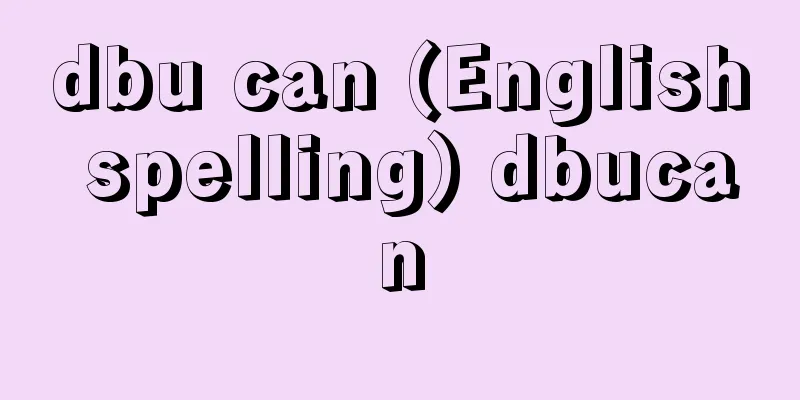
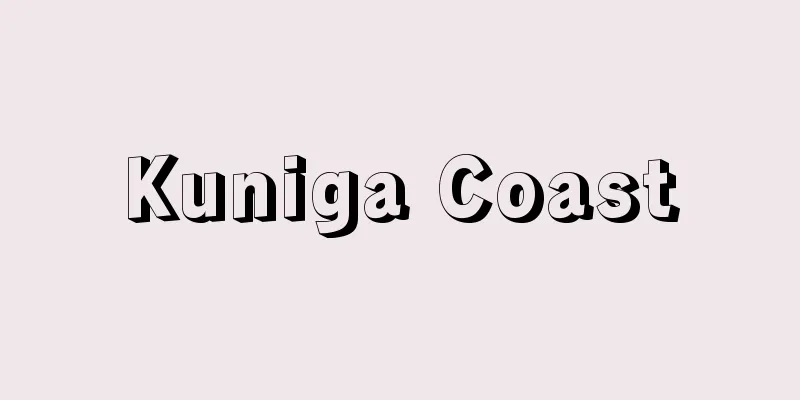
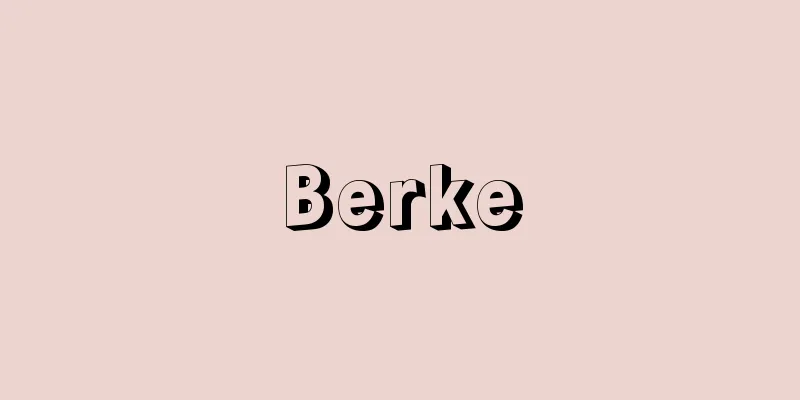
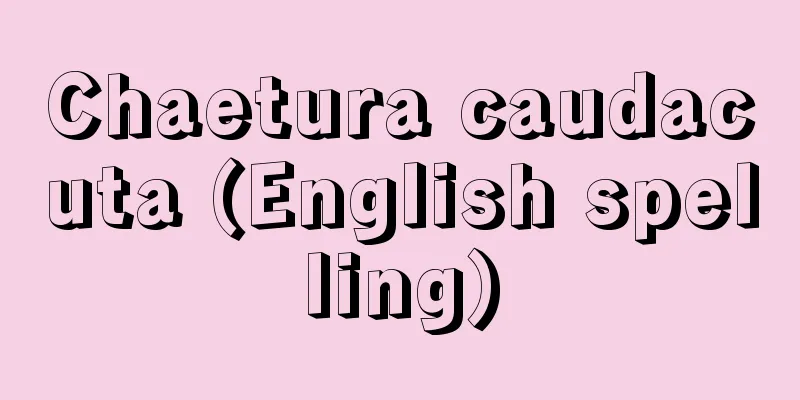

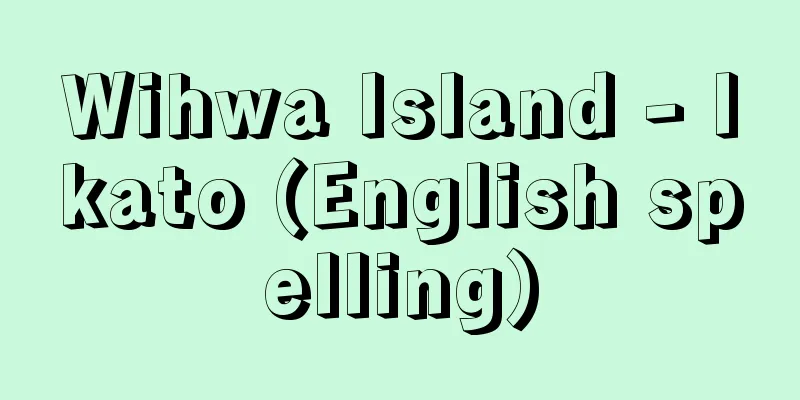
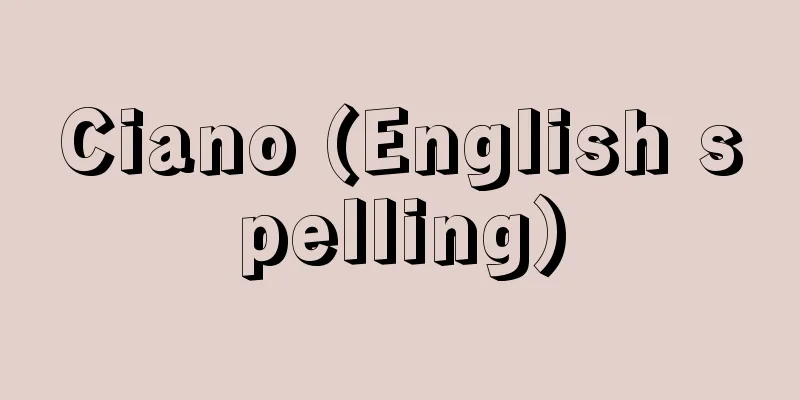
![Gamou [town] - Kamou](/upload/images/67cb40401bff6.webp)
